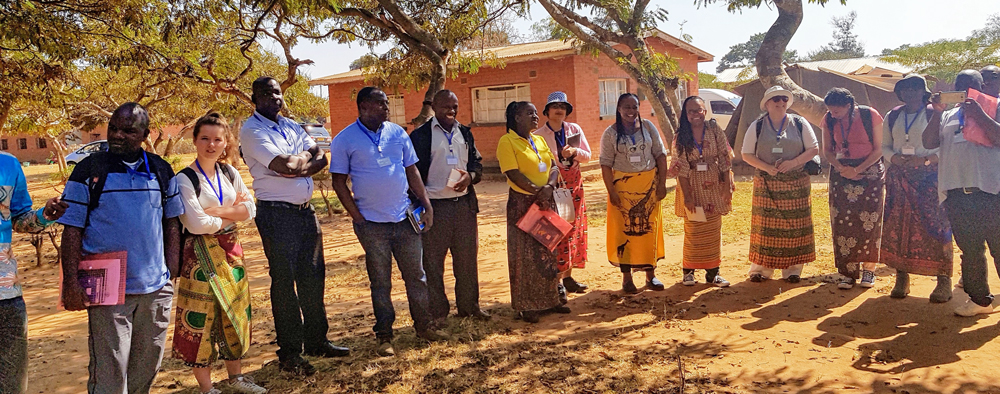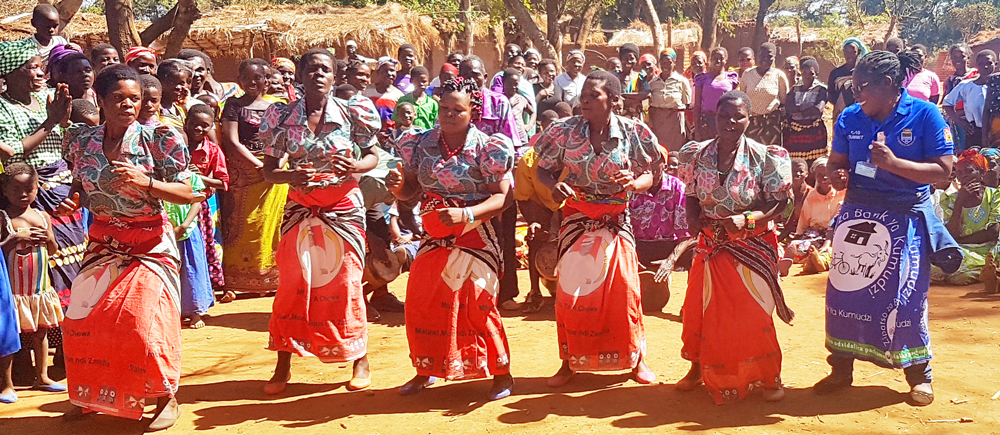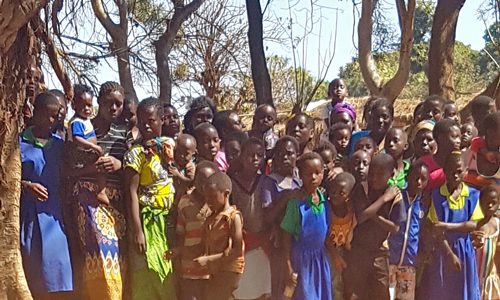BRECcIA held its first Summer School in July in two villages in Malawi – Chinsamba and Chankhuntha – both close to Malawi’s capital, Lilongwe. It brought together early career researchers (mainly PhD students and post-docs) from the wide range of disciplines and institutions within BRECcIA to provide experiential interdisciplinary training on water and food security.

Twenty six early career researchers participated in the summer school, which was designed and led by Dr Kate Schreckenberg (Kings College London), a human geographer, Professor Laura Lewis (University of Southampton), an anthropologist, and Professor Sosten Chiotha (LEAD-Malawi), an environmental scientist. Additional on-site supervision was provided by hydrologist Prof Justin Sheffield (University of Southampton), geographer Associate Prof Joy Obando (Kenyatta University, Kenya), mathematician Dr Levis Eneya (University of Malawi) and Dr Mangani Katundu (University of Malawi), a specialist in nutrition and food security.
 The early career researchers were organised into small multi-disciplinary teams comprising both natural and social science. On the first day, everyone was briefed on the local context, ethical and cultural issues, and health and safety, before being welcomed and provided with further insights by the regional Agricultural Extension Officer. The ECRs were then divided into two groups of mini-teams for initial visits to the villages. At Chinsamba the teams were met by drummers, and women and children singing, whilst at Chankhuntha, they were met with a funeral cortege that meant no-one was at home! Surprises like this are always to be expected in field research and the Chankhuntha group instead met a local entrepreneur producing honey, who provided useful background information in preparation for the next two days of fieldwork.
The early career researchers were organised into small multi-disciplinary teams comprising both natural and social science. On the first day, everyone was briefed on the local context, ethical and cultural issues, and health and safety, before being welcomed and provided with further insights by the regional Agricultural Extension Officer. The ECRs were then divided into two groups of mini-teams for initial visits to the villages. At Chinsamba the teams were met by drummers, and women and children singing, whilst at Chankhuntha, they were met with a funeral cortege that meant no-one was at home! Surprises like this are always to be expected in field research and the Chankhuntha group instead met a local entrepreneur producing honey, who provided useful background information in preparation for the next two days of fieldwork.

The aim of the initial village visits was for the teams to scope out possible research questions that could be explored with a variety of research techniques during the remainder of the week. Teams focused on water quality and management, land health and coping strategies, sociocultural and economic issues, and livelihood activities and aspirations. Examples of methods used included participatory mapping of villages and agricultural resources, interviews, and soil and water testing.
Matthews Tsirizeni (LEAD-Malawi) brought his drone along and demonstrated it, which inevitably excited the children. But this wasn’t just for entertainment, Matthews was also able to photograph the villages from the air. BRECcIA left these images along with photographs the teams had taken during the training week with the village chiefs and individuals, as a ‘thank you’. We also left gifts for the schools and children. Following the summer school, the teams produced written reports for both villagers and agricultural extension officers.
Undoubtedly, the highlight for the ECRs was the team presentations to each of the communities, reporting on what they had learned.
Each village thanked the BRECcIA researchers in return with celebratory traditional singing and masked dancers who scared the children and delighted us!



